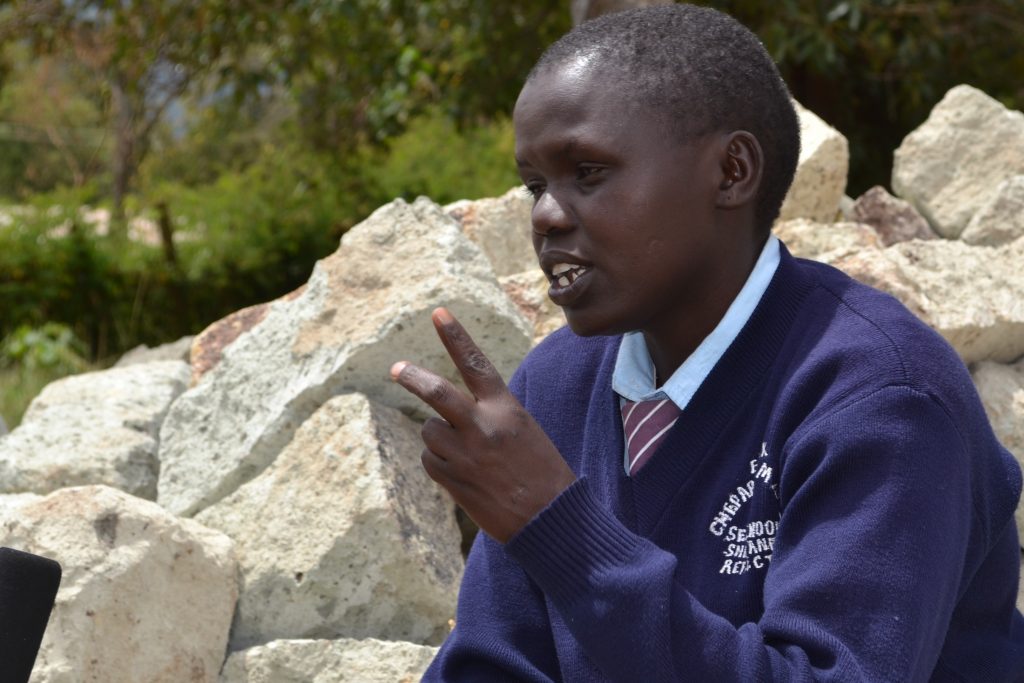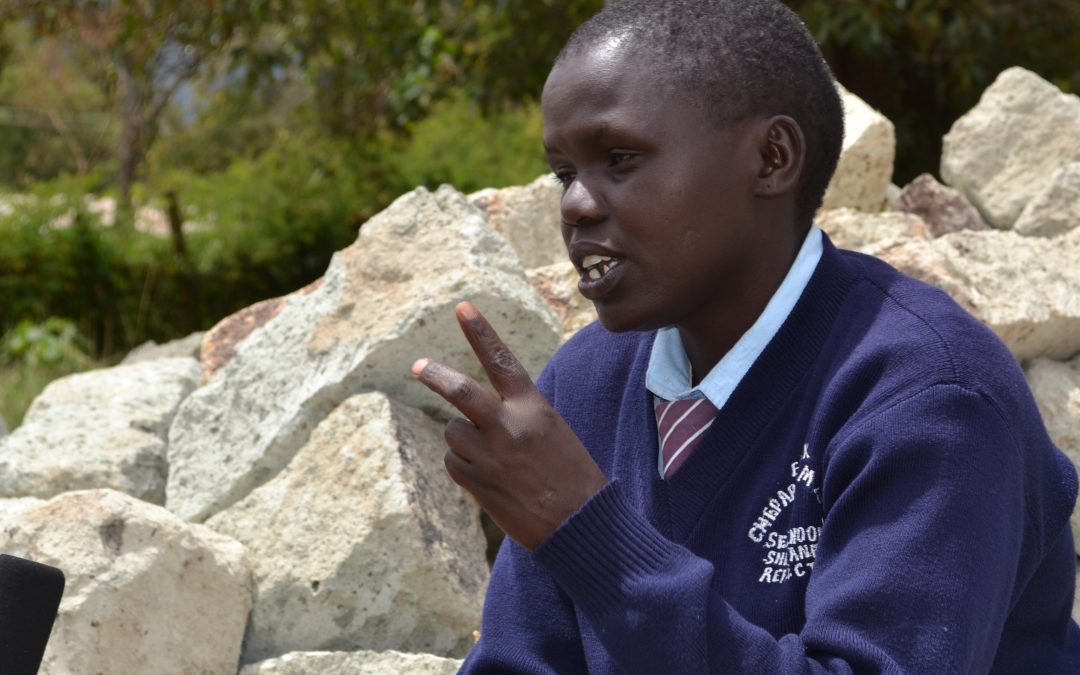
Catherine Pkutor a student at a secondary school in West Pokot narrates her story.
Catherine dropped out of school as a teenage mother and wife before returning to school to complete her studies. DSW’s advocacy work for family planning investment is intended to help thousands of girls like her in Kenya avoid teenage pregnancy. PHOTO: Collins Baswony/Deutsche Stiftung Weltbevölkerung (DSW)
A Deutsche Stiftung Weltbevölkerung (DSW) partner county in Kenya has invested KES. 10.2 million (USD 99,000) for family planning for the 2016/2017 financial year.
Speaking about this family planning investment, the county’s reproductive health Coordinator, Siree Consolata said that the funds will be used for family planning promotion across the county.
“As a county we are now prioritizing family planning. We recognize that when we prioritize family planning in our county automatically other health indicators like maternal, child health and nutrition will improve.” said Ms. Siree
According to Mrs. Siree, the KES. 10.2 million (USD 99,000) will be used to support radio talk shows on family planning uptake, chief’s baraza meetings for family planning sensitizations (local village meetings), family planning camps and outreaches in the county.
“These activities have been captured in our annual work plans and we will ensure that they are implemented within the planned time frame. We have committed to raising our CPR (contraceptive prevalence rate) from the current 14% to 18% in the next two years and this programs planned will see us get there”. Ms. Siree added.
West Pokot County, located in Western Kenya, has a very low rate of use of family planning methods at 14% (the national average in Kenya is 58%). Alongside that, the county also has a total fertility rate (number of children per woman) of 7.2, compared to the national average of 3.9 children per woman.
DSW has collaborated with individuals, groups, organisations, government departments, and other parties with a vested interest in health service delivery in West Pokot to advocate for investment in family planning.
This collaboration involved conducting budget analysis in partnership with the county government which highlighted the gaps on family planning investment; holding advocacy meetings with policy makers (Members of the County Assembly, the County Director of health, The County Chief Officer of health and the Reproductive Health Coordinator ) on family planning investment; supporting the process of development of the county’s reproductive health work plan with a view of prioritizing family planning in the county.
Increased funding from national and sub-national governments in Kenya to address the unmet need for family planning is one of the key goals of the SHAPE (Securing Health through Advocacy and People’s Empowerment) project.
The three-year SHAPE project aims to mobilize more and better funds from key European donors (Germany and The European Union) as well as from East African governments (Kenya, Tanzania, Uganda) to support family planning. In Kenya, DSW is implementing the project in 8 counties: West Pokot, Kilifi, Laikipia, Meru, Mombasa, Nakuru, Nyandarua and Uasin Gishu
The amount of invested for family planning was corrected from KES. 19.5 million (USD 188,000) to KES. 10.2 million (USD 99,000). This is because a budget study conducted revealed that KES. 19.5 million (USD 188,000) earlier reported included immunization funding as well as family planning funding.
(Written by Tashrifa Silayi. Edited by Collins Baswony)

